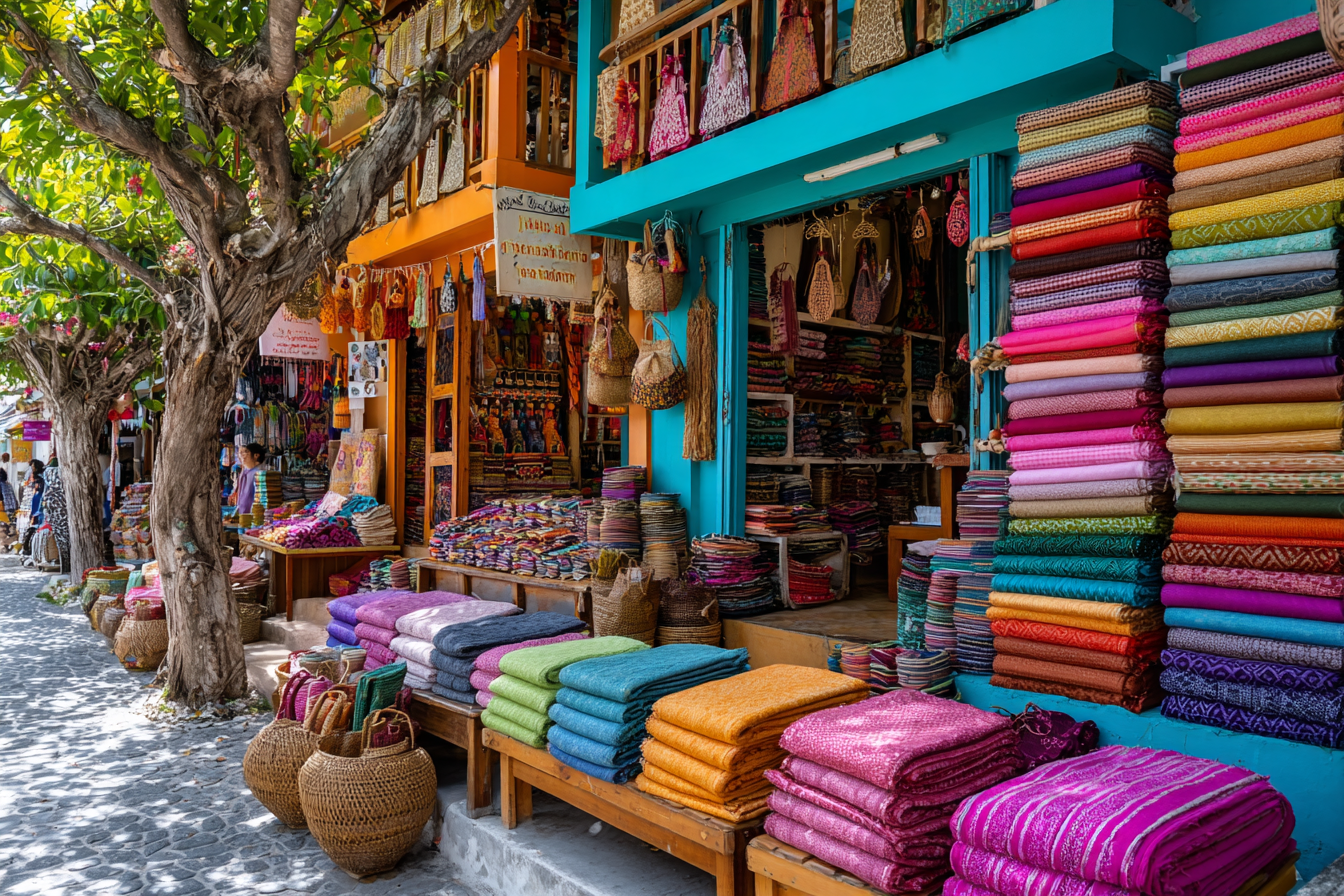Uluwatu, a stunning coastal area in the southern part of Bali, is not just famed for its breathtaking cliffs and surf-friendly beaches but also for its vibrant shopping scene. For those who love exploring local markets and hunting for unique souvenirs, Uluwatu offers an array of options that perfectly blend authentic Balinese culture with trendy artisan crafts. Whether you’re after handmade products, traditional textiles, or quirky beachwear, shopping in Uluwatu is an adventure in itself.
Exploring Uluwatu’s Local Markets and Handicraft Stalls
The heart of shopping in Uluwatu lies in its bustling local markets and small handicraft stalls scattered across the area. These markets are where you can truly soak in the Indonesian atmosphere—vibrant, colorful, and full of life. Among the most popular spots is the Uluwatu Art Market, located near the famous Uluwatu Temple, which offers a wide range of products crafted by local artisans. You’ll find everything from intricate wood carvings to beautiful paintings depicting Balinese culture.
Additionally, many of the smaller roadside stalls and pop-up markets near the beach areas like Padang Padang and Bingin are perfect for spontaneous shopping that feels authentic and personal. These markets emphasize traditional handicrafts, such as woven bags, beaded jewelry, and hand-dyed batik fabrics, all made with great attention to detail by local talent.
Popular Items and Souvenirs to Look For
When shopping in Uluwatu, a number of items stand out as quintessential Balinese souvenirs. Here’s a glimpse of what you should keep an eye out for:
- Handcrafted Jewelry: From silver rings and necklaces to natural stone bracelets, Balinese jewelry-making is a centuries-old tradition. Many vendors incorporate unique tribal designs and traditional motifs.
- Batik and Textiles: Beautiful hand-painted or batik-dyed sarongs, scarves, and fabric pieces that make excellent gifts or stylish clothing.
- Wood Carvings: Intricately carved figurines and decorative items made from local woods like teak and ebony, often depicting mythological creatures or Hindu gods.
- Eco-Friendly Beachwear: Trendy yet sustainable clothing items, often crafted from organic cotton or recycled materials reflecting Uluwatu’s eco-conscious vibe.
- Spices and Traditional Herbs: For food lovers, buying locally sourced spices like turmeric, ginger, and cloves is a way to bring a piece of Bali’s rich culinary heritage back home.
- Home Decor: Handmade lamps, baskets, and pottery that effortlessly combine modern and traditional styles.
When to Visit the Markets: Best Days and Times to Shop
If you want the full market experience without overwhelming crowds, timing is everything. Most markets in Uluwatu operate daily, but the best time to visit is typically in the morning when vendors display their freshest goods and there’s a lively but manageable atmosphere.
Weekend markets, especially on Saturdays and Sundays, tend to be more vibrant with a wider range of products on offer, along with occasional food stalls and live music that add to the festive ambience. However, if you prefer a quieter shopping experience, weekdays early in the morning or late afternoon are ideal.
Keep in mind that during religious holidays or local ceremonies, some markets might close or operate at limited hours, so it’s a good idea to check ahead if you’re planning your visit around such times.
Smart Shopping: Tips for Bargaining and Market Etiquette
Bargaining is an integral part of the shopping culture in Uluwatu markets, and it’s both expected and welcomed. To get the best deals while maintaining good manners, here are a few tips:
- Start with a Smile: Being friendly sets a positive tone for the negotiation and often results in better prices.
- Know Your Budget: Have a clear idea of the maximum you’re willing to pay, but don’t reveal it upfront.
- Make an Offer: It’s common to offer around 50–70% of the asking price initially and then negotiate up as needed.
- Be Patient: Sellers may counteroffer several times. Enjoy this back-and-forth as part of the experience but know when to walk away if the price feels unfair.
- Respect the Sellers: If you decide not to buy, politely thank the vendor and move on without causing offense.
- Handle Goods Carefully: Many items are handmade and delicate, so treat them gently while browsing.
Nearby Shopping Centers and Boutiques
While the local markets are charming and full of character, Uluwatu also boasts a number of chic shopping centers and boutiques that cater to those seeking polished retail experiences. Places like the Uluwatu Beach Shop and Dreamland Plaza offer a curated selection of high-quality designer beachwear, Balinese-inspired home décor, and luxury spa products.
In addition, many small boutique shops around the Jimbaran and Pecatu areas stock limited edition artworks and fashion pieces created by emerging Balinese designers. These shops often showcase eco-friendly and sustainable products, reflecting the area’s commitment to responsible tourism.
One-of-a-Kind Gifts and Artisan Products
For shoppers looking to bring something truly special home, Uluwatu’s artisan scene produces several unique products that make excellent gifts. Local artists often collaborate with traditional craftsmen to create contemporary art pieces that reflect Bali’s unique heritage.
Examples include hand-painted surfboards decorated with Balinese motifs, bespoke jewelry combining precious stones with native designs, and custom-made leather sandals crafted by expert artisans. These personalized and often limited-edition items provide memorable keepsakes beyond typical souvenirs.
Your Shopper’s Guide to Uluwatu
Shopping in Uluwatu is a sensory-rich journey through culture, creativity, and color. To make the most of your visit:
- Plan your market visits in the mornings or weekends for the best variety and freshest goods.
- Carry cash in local currency, as many stalls don’t accept cards.
- Wear comfortable clothing and shoes, as you’ll likely spend time walking on uneven surfaces or sandy streets.
- Don’t hesitate to ask about the story behind each handmade item—it enriches the shopping experience and helps you appreciate the craftsmanship.
From traditional handicrafts to stylish fashions and eco-conscious gifts, Uluwatu’s shopping options cater to everyone’s taste and budget. So, whether you’re hunting for a unique souvenir, a gift to impress, or simply a memento of your Bali adventure, the markets and shops here offer treasures waiting to be discovered.







